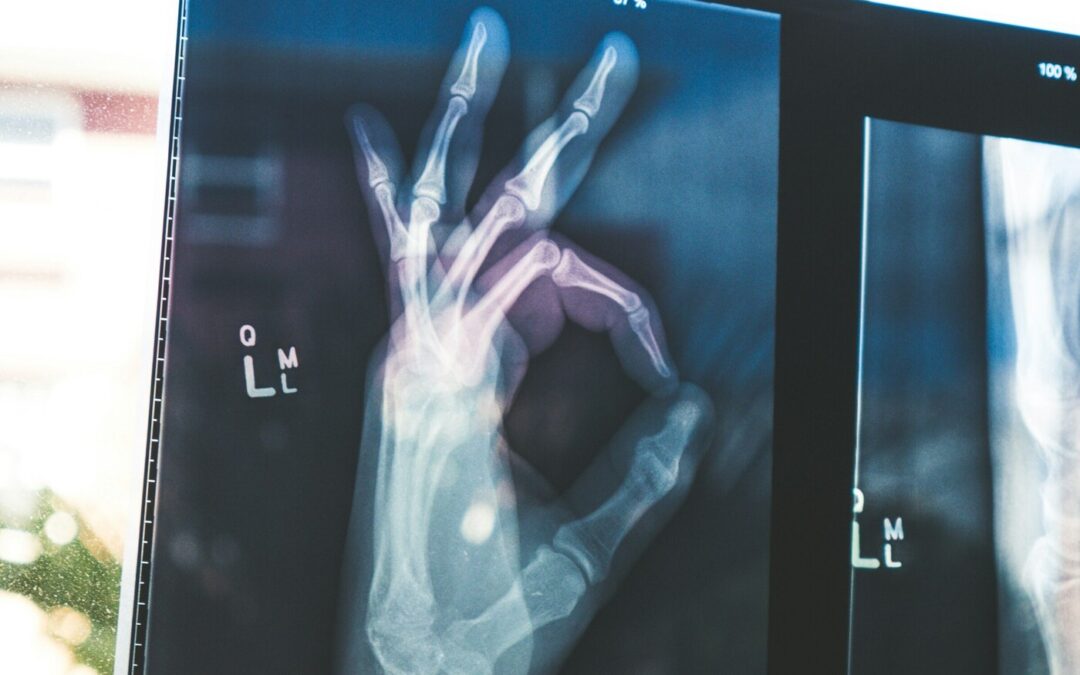Ahead of National Stress Awareness Day on Wednesday 4 November 2020, James Scrimshaw, Director of Cura Clinical, Chiropractor and specialist in MBST Therapy, shares insight on stress and the impact it has on the body.
Key points:
- National Stress Awareness Day is on Wednesday 4 November 2020
- Stress is our body’s natural reaction to pressure, crisis, worry, physical challenges and emotional demands.
- Stress can be positive – helping us to evolve and adapt, or negative – where the stress is beyond our coping and adaptation abilities, damaging us both mentally and physically, for example, affecting cell health, joints and physical well being.
- Most people consider stress in terms of mental impact. However, stress affects biological function at a cellular level. It can reduce cell function and communication which can kill cells and cause tissue degeneration.
- In particular, joints and tissues suffer from the cell damage caused by stressors (damage, obesity, injury, the impacts of daily life). Over time, stressed cells stop functioning entirely, leading to overall joint degradation and conditions such as Osteoarthritis.
- To avoid the impacts, we should seek to minimise stress and in turn stressors, recognising when positive stress becomes negative, protecting our mental and physical health.
How can we reduce stress?
There are several ways we can influence the stress on our body, including:
- Practicing mindfulness and relaxation
- Eating a balanced diet
- Staying hydrated
- Increasing physical exercise
- Reducing negative stressors such as smoking, trans fats, and refined sugars
- Practicing self-care
Repairing cells damaged by stress
- If the impact of stress and stressors has already had an effect, cells can be repaired and restored with pioneering, non-invasive cell regeneration therapy, or MBST.
- This reinvigorates damaged and stressed cells in joints and tissues leading to a significant internal healing process, and prolonging the life of otherwise damaged areas.
When and what is National Stress Awareness Day?
National Stress Awareness day is held annually on the first Wednesday in November, this year National Stress Awareness Day falls on the 4th November. It was created by the charity International Stress Management Association in 2016 to get people talking about stress and how it can be managed and resolved.
What is stress?
Stress is our body’s natural reaction to pressure, crisis, worry, physical challenges and emotional demands. Positive stress leads to evolution and adaptation, making us fitter, more durable, increasing immunity and giving us a sense of achievement. Negative stress occurs when those pressures and challenges are beyond our coping levels, and if left unresolved can cause major health issues and traumas.
What sort of stress is there?
Negative stress comes in many forms.
- Psychological or physical.
- Traumatic, acute or long-term.
- Nutritional, mechanical or toxic.
All are damaging, and all can be managed to varying degrees.
What causes stress?
Stress can be caused by any number of different things, but the one common factor is that it puts pressure on us in some way. These differ from person to person, and can be one big thing or lots of little things. Challenging situations can cause stress, such as:
- Illness
- Bereavement
- Relationship breakdown
- Job loss/change
- Money worries
- Moving house
- Pregnancy/becoming a parent
- Big events such as weddings or holidays
Not all stress-inducing situations are negative, some happy events like having a baby can bring on stress due to the levels of uncertainty and change which come with it.
Psychological stress
The impact of psychological stress is widely recognised nowadays, with conditions such as anxiety and depression both caused by and leading to problems with work, relationships, and day-to-day life. Psychological stress is commonly treated with medication, talking therapies, CBT, or holistic remedies.
Psychological stress can cause the release of the adrenaline and cortisol hormones, commonly known as the ‘fight, flight or flee’ response, and frequent overproduction of these hormones can negatively affect our physical health.
Physical stress
We know that physical stress can be caused by environmental factors. For example, a poor diet can stress our pancreas into overproducing insulin, which leads to obesity and potentially type 2 diabetes. Obesity in turn puts added pressure on our joints and bones, leading to damage. Excess alcohol stresses the liver which can lead to a fatty liver and Cirrhosis. The stress that smoking places on our lungs is well known. These effects can be observed visually, in physical performance, and in medical results.
However, stress also affects biological function at a cellular level. Stress can reduce cell function and communication which then causes cell differentiation, or by killing the cells and causing tissue degeneration. It is this cell damage and reduction of function which leads to conditions like cancer. Additionally, stress and cell damage increases levels of inflammation in the body, leading to painful, sometimes life-threatening conditions.
Repairing cell damage caused by stress
In particular, joints and tissues suffer from the cell damage caused by stressors. For example, a hip joint begins life with plenty of smooth hyaline cartilage, ready to weight-bear for 50-100 years. At some point, daily life begins to negatively affect the function of the cartilage cells, restricting their ability to replenish. This process can be exacerbated by biological stressors like obesity and injury. Over time, stressed cells stop functioning entirely, leading to overall joint degradation and conditions such as Osteoarthritis.
Contrary to popular belief, Osteoarthritis and other degenerative joint conditions are not caused by ‘wear and tear’ in the sense that exercise alone causes them. It is where the existing repair processes are damaged by stressors. These repair processes can be restored with cell regeneration therapy, or MBST. This therapy reinvigorates damaged and stressed cells in joints and tissues leading to a significant internal healing process, and prolonging the life of otherwise damaged areas. This therapy, in tandem with implementing stress reduction techniques, can positively impact our overall health and happiness.
The purpose behind National Stress Awareness day is to increase knowledge of this condition, build awareness of its impact and to reduce the stigma by talking about it openly. Visit https://isma.org.uk/ and https://www.stress.org.uk/ for more information.
For more information on how the impacts of physical stress can be managed and treated, visit https://curaclinical.com/


